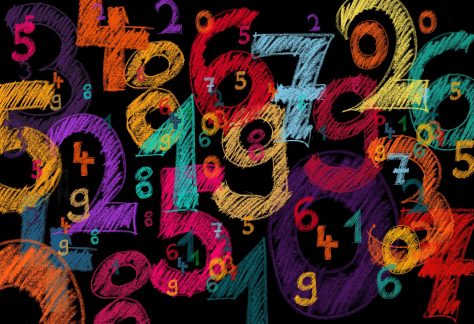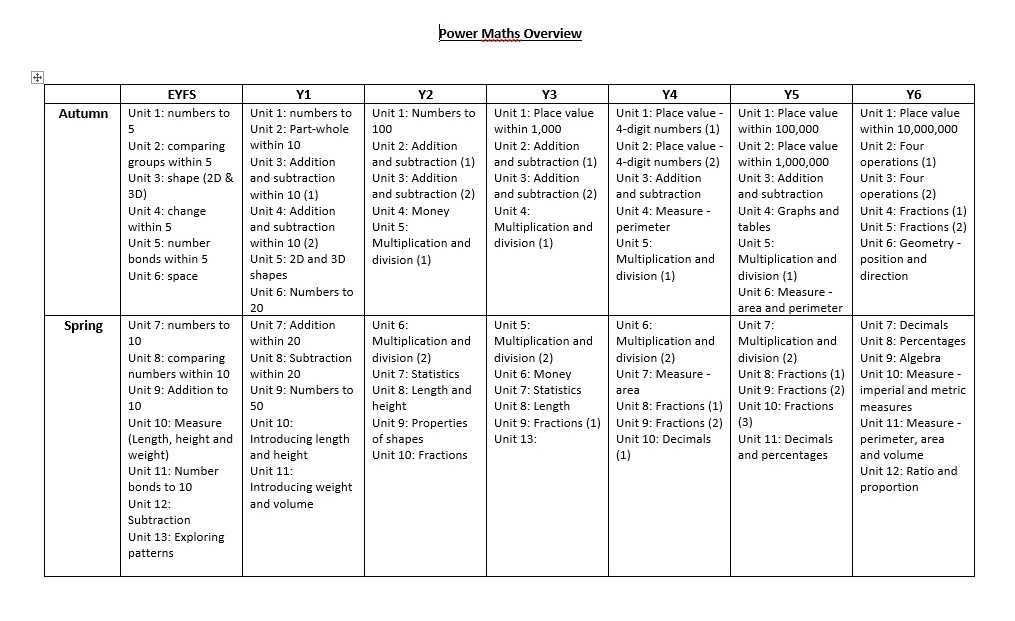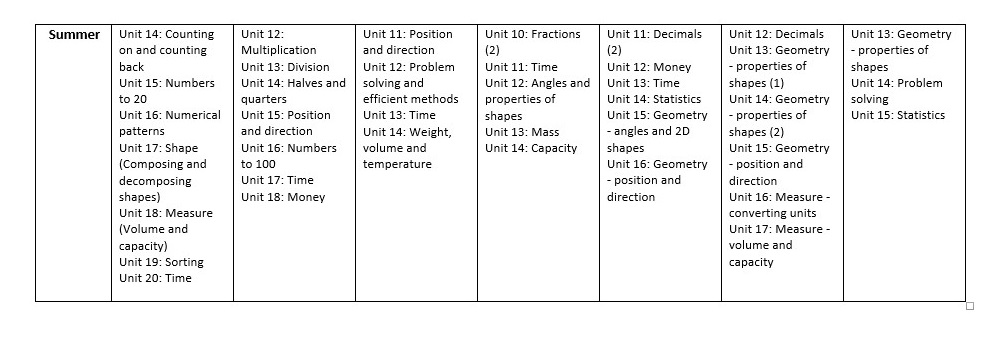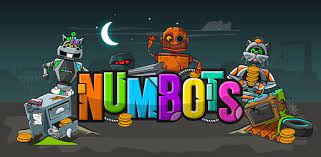
Intent
At Huncote Primary School we aim to develop confident and competent mathematicians. We believe that mathematics is essential to everyday life and we believe that it is an important part of the children’s development throughout school.
We aim to provide a high-quality mathematics education with a mastery approach so that all children can:
- become fluent in the fundamentals of mathematics;
- reason mathematically;
- can solve problems by applying their mathematics.
(National Curriculum 2014)
At Huncote, we are aiming for all pupils to understand maths at the deepest levels and that is our reasoning for using the mastery approach.
We intend to do this by:
- Ensuring our children have access to a high quality maths curriculum that is both challenging and enjoyable;
- Providing our children with a variety of mathematical opportunities, which will enable them to make the connections in learning needed to enable greater depth in learning;
- Ensuring children are confident mathematicians who are not afraid to take risks;
- Fully develop independent learners with inquisitive minds who have secure mathematical foundations and an interest in self-improvement.
Implementation
Our mastery approach to the curriculum is designed to develop children’s knowledge and understanding of mathematical concepts from Early Years through to the end of Y6 using the Power Maths Scheme.
Planning
- Long term: National Curriculum.
- Medium term: Yearly overview and Unit overviews provided by Power Maths Scheme.
- Short term: – Daily retrieval tasks/‘Flashback’/ Power Ups that promote retrieval of previous learning followed by lessons that consist of a Discover, Share and Think Together section that are taught whole class by the teacher. These are then followed by independent work within the practice book to practise any new teaching. The lesson is finished off with a reflection on the teaching to consolidate learning.
Our Power Maths lessons incorporate when relevant: concrete, pictorial and/or abstract approaches.
The mastery approach incorporates all of these to help children explore and demonstrate mathematical ideas, enrich their learning experience and deepen understanding. Together, these elements help cement knowledge so pupils truly understand what they’ve learnt. All pupils, when introduced to a key new concept, should have the opportunity to build competency in this topic by taking this approach.
Pupils are encouraged to physically represent mathematical concepts. Objects and pictures are used to demonstrate and visualise abstract ideas, alongside numbers and symbols.
Concrete – children have the opportunity to use concrete objects and manipulatives to help them understand and explain what they are doing.
Pictorial – children then build on this concrete approach by using pictorial representations, which can then be used to reason and solve problems.
Abstract – With the foundations firmly laid, children can move to an abstract approach using numbers and key concepts with confidence.
Short term planning is also supported by the use of the White Rose Maths Hub materials, NCETM, NRICH and other resources teachers deem useful.
Teaching
‘Quality first teaching’ linked to teaching standards:
All teachers:
- ‘Know where their children are’ through the use of concise summative assessment, prior learning, assessment, maths talk and whole class marking;
- ‘Understand where their children need to be’ through a secure understanding of year group expectations and/or pre key stage expectations and incisive, ongoing, formative assessment;
- ‘Know how they are going to get them there’ through the use of a range of strategies to promote independence, mastery and high expectations of ALL;
- Effectively deploy adults, specifically during introductions, plenaries & ‘flashbacks’. Adults are used to plan for progression during and between lessons.
EYFS
Children develop the core ideas that underpin all calculation. They begin by connecting calculation with counting on and counting back, but they should learn that understanding wholes and parts will enable them to calculate efficiently and accurately, and with greater flexibility. Children record their calculations in their own ways, there is no expectation of number sentences at this stage however children may choose this way to record their thinking.
KS1
Children develop the core ideas that underpin all calculation. They begin by connecting calculation with counting on and counting back, but they should learn that understanding wholes and parts will enable them to calculate efficiently and accurately, and with greater flexibility. They learn how to use an understanding of 10s and 1s to develop their calculation strategies, especially in addition and subtraction.
LKS2
In Years 3 and 4, children develop the basis of written methods by building their skills alongside a deep understanding of place value. They should use known addition/subtraction and multiplication/division facts to calculate efficiently and accurately, rather than relying on counting. Children use place value equipment to support their understanding, but not as a substitute for thinking.
UKS2
In Upper Key Stage 2, children build on secure foundations in calculation, and develop fluency, accuracy and flexibility in their approach to the four operations. They work with whole numbers and adapt their skills to work with decimals, and they continue to develop their ability to select appropriate, accurate and efficient operations.
Assessment
Summative– Headstart materials (Y1-y5)
Previous SATS materials in Year 2/6
End of Key Stage Assessments (YR, Y2– Y6)
Summative/ diagnostic (where necessary) – Power Maths End of Unit Checks
Formative / ongoing – Whole class feedback booklets along with marking of Power Maths practice books (See marking and feedback policy)
Prior & Post learning – informs future planning, demonstrates progress in books, celebrates effort and achievement.
Impact
Following the effective implementation of Huncote’s Maths curriculum pupils will be able to:
- Quickly recall facts and procedures,
- Recognise relationships and make connections in mathematics,
- Flexibly and fluidly move between different contexts and representations of mathematics,
- Reason about their calculations and recognise/explain mistakes,
- Solve problems by applying their mathematics to a variety of routine and non-routine problems with increasing sophistication.
‘A mathematical concept or skill has been mastered when a child can show it in multiple ways, using the mathematical language to explain their ideas, and can independently apply the concept to new problems in unfamiliar situations.’
These will be assessed through: assessment, tracking, pupil progress meetings, performance management and moderation.
Long Term Overview


| Title | Size | Download |
|---|---|---|
| TTRS_Parent_Guide | 835.20 KB | DownloadPreview |
| Power Maths UKS2 Calculation Policy | 2.34 MB | DownloadPreview |
| Power Maths LKS2 Calculation Policy | 2.96 MB | DownloadPreview |
| Power Maths KS1 Calculation Policy | 2.41 MB | DownloadPreview |
| NumBotslaunchparentguide | 1.50 MB | DownloadPreview |
Learning at home
There are lots of different websites and apps available to support with children’s numeracy knowledge and providing opportunities to practise key skills.
Times Tables Rockstars
This is an invaluable resource to get all children fluent in their timestables and can be accessed through the following link. Children from Year 1 to Year 6 have a log on for this. If you have lost your log on, please message your class teacher on Class Dojo. Click the image to load TTRS.
The following link will also allow access to a parent’s guide that will give you a bit more information about how it works and how children move up the leader board.


